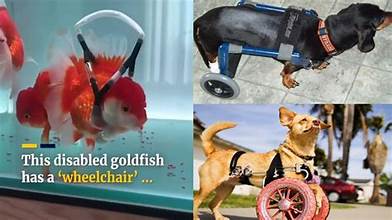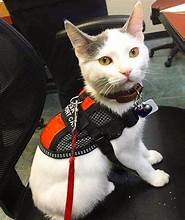A Compassionate Guide to Accessing Support Without Financial Barriers
Service animals are more than just companions. They can transform lives, providing independence, emotional support, and physical assistance for people with disabilities. But for many individuals and families, the cost of obtaining and training a service animal can feel out of reach. The good news? There are ways to get a fully trained service animal for free or at a reduced cost, especially if you know where to look and how to advocate for your needs.
This guide empowers you with the knowledge of how to get a service animal without paying out of pocket.
🐾 What Is a Service Animal?
A service animal is typically a dog (and in rare cases, a miniature horse) trained to perform specific tasks that directly assist a person with a physical, psychiatric, intellectual, or sensory disability.

Common tasks include:
- Guiding individuals who are blind or visually impaired
- Alerting to seizures or changes in blood sugar
- Retrieving items for someone with limited mobility
- Providing deep pressure therapy for anxiety or PTSD
Under the Americans with Disabilities Act (ADA), service animals are not pets—they are working animals with legal protections.
💸 Why Are Service Animals So Expensive?
A fully trained service dog can cost between $15,000 and $50,000, depending on the level of training and the tasks they’re taught. This includes:

- Breeding and raising the dog
- Basic and advanced task-specific training
- Health care, vaccines, and certification
- Handler education and transition support
However, numerous nonprofits and programs exist to help individuals obtain service animals at no cost.
✅ How to Get a Service Animal for Free
1. Apply Through a Nonprofit Organization
Several reputable nonprofits offer fully trained service animals to qualified individuals at no cost or through scholarships.
Examples of organizations to explore include:
- Canine Companions
www.canine.org
Offers service dogs free of charge for adults, children, and veterans with disabilities. - Paws With A Cause
www.pawswithacause.org
Specializes in service dogs for people with mobility issues, seizure disorders, or hearing loss. - NEADS World Class Service Dogs
www.neads.org
Offers service dogs for autism, PTSD, and physical disabilities. - Service Dogs for America
www.servicedogsforamerica.org
Offers dogs to veterans and civilians for a range of disabilities. - 4 Paws for Ability
www.4pawsforability.org
Works with children with disabilities and veterans, often helping with autism or seizure alert dogs.
💡 Note: Patience is key, as wait times can range from several months to 2 years due to demand. Understanding this can help manage expectations and facilitate a more effective navigation of the process.
2. Reach Out to Veterans’ Support Programs
If you are a veteran, the U.S. Department of Veterans Affairs (VA) or veteran-focused organizations, such as K9s For Warriors, may provide trained service dogs free of charge.
- K9s For Warriors
www.k9sforwarriors.org
Offers dogs to veterans with PTSD, TBI, and other service-related conditions. - Patriot PAWS
www.patriotpaws.org
Matches veterans with service dogs at no cost.
3. Crowdfunding or Local Grants
While not always a guaranteed path to a free dog, some families find success by applying for local disability grants or using platforms like GoFundMe to raise funds for service animal costs.
Also, check with:
- Local disability support organizations
- Community foundations
- Religious groups or civic organizations (like Rotary Clubs)
4. Talk to Your Doctor or Therapist
Having documentation from a licensed healthcare provider describing your disability and why a service animal is medically necessary can:
- Strengthen your application to nonprofits
- Help identify if your condition qualifies under ADA rules.
- Assist with legal protections and housing accommodations (under the Fair Housing Act)
🚩 Caution: Beware of Scams
Unfortunately, the service animal industry is plagued by misleading information and fraudulent registries. Remember:
- There is no official national registry for service dogs.
- You don’t need a vest, ID card, or certificate for a dog to be recognized as a service animal under the ADA.
- Legitimate organizations will not charge thousands of dollars upfront for “registration” or “certification” without proper training.
Always research the organization thoroughly and verify that they follow ADA guidelines and ethical training practices.
Final Thoughts
While it can take time and effort, it is possible to get a trained service animal for free. With the proper nonprofit support, documentation, and a bit of patience, you or your loved one can be matched with a life-changing partner without taking on financial hardship.




